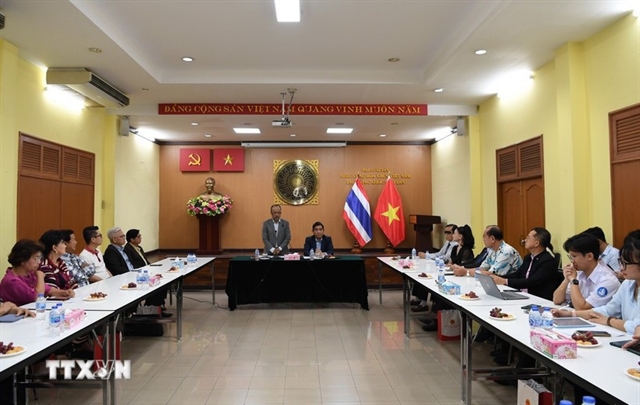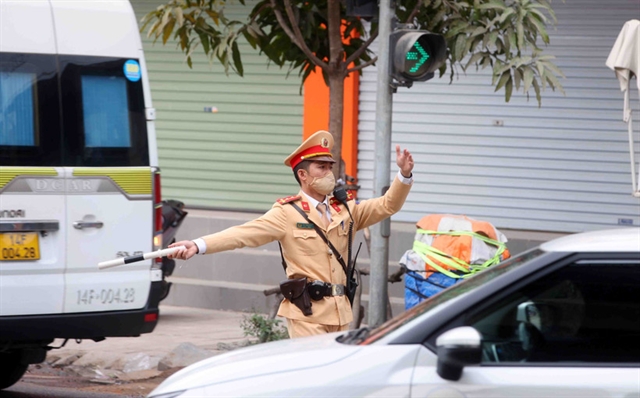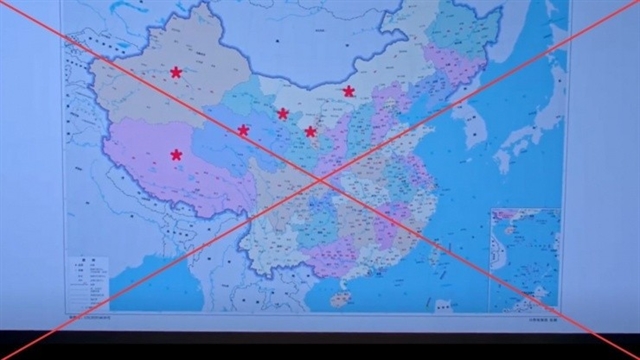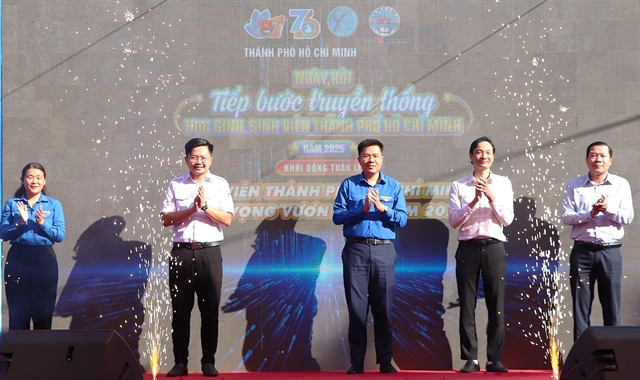 Society
Society

Strides have been made in Việt Nam to eradicate illiteracy over the last seventy years, and efforts to promote literacy continue today.
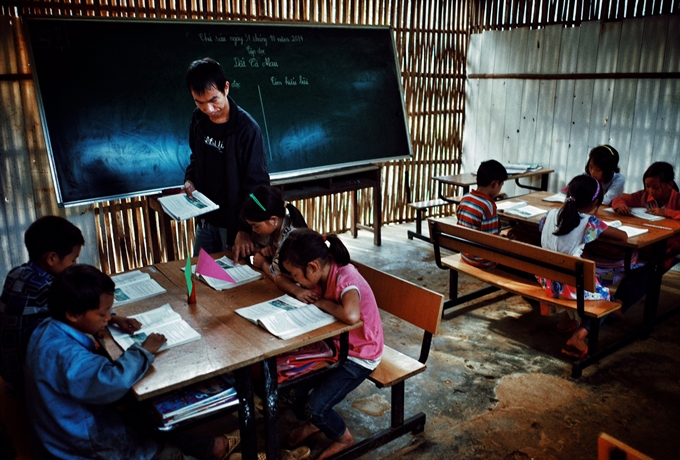 |
| A class in Bát Xát district of the northern mountainous province of Lào Cai. Việt Nam has made strides to boost illiteracy eradication. - VNS Photo Việt Thanh |
HÀ NỘI– Strides have been made in Viêt Nam to eradicate illiteracy over the last seventy years, and efforts to promote literacy continue today.
Việt Nam met the national standard for literacy in 2000, with 94 per cent of the population aged between 15 and 35 literate, compared to more than 95 per cent of the population being unable to read or write in 1945.
The literacy rate reached 98.1 percent in the 15-35 age group and 96.83 per cent in the 15-60 age group, according to a report on the 2015-2016 academic year by the Ministry of Education and Training (MoET).
Cities directly subordinate to the central government and the provinces in the Red River Delta and the northern central region performed best in tackling illiteracy.
Most of the illiterate are ethnic minority people, who account for 44.8 percent of total illiterate people nationwide, MoET data show.
Widespread domestic efforts
Việt Nam had made strides to boost illiteracy eradication, said Nguyễn Công Hinh – Director of the MoET’s Department of Continuing Education.
About 11,060 community-based learning centres across the country had tackled illiteracy, he said, explaining that they had opened classes and launched learning activities to help learners develop their reading and writing skills.
In 2013, a scheme on stamping out illiteracy in the country by 2020 was approved by the then Prime Minister Nguyễn Tấn Dũng. It aims to raise the literacy rate among the 15-60 year-olds to 98 percent by 2020.
Per the scheme, specific illiteracy elimination plans had been devised for each province, Hinh said.
The MoET stepped up reforming teaching methods, especially by using the Regenerated Freirean Literacy through Empowering Community Techniques (REFLECT) for areas with high illiteracy rates, including the northern mountainous, Central Highlands and Mekong Delta areas.
It partnered with the education promotion association, the farmers’ union, the women’s union, and the youth union to engage every resource in illiteracy eradication.
“While intensive training in knowledge and teaching methods has been given to both full-time and part-time teachers, more classes have been opened for disadvantaged people like ethnics, the disabled and prisoners, to enable their access to knowledge,” Hinh noted.
Cooperation with foreign partners
Việt Nam’s accomplishments in the domain were partly attributed to the assistance of international organisations, Hinh said, highlighting the “Strategic Development of Literacy Initiative for Empowerment Resource Support System” project.
With UNESCO support, the project was carried out across all 63 provinces and cities from November 2006 to December 2008, aiding the MoET and localities in developing community-based learning and continuing education, providing training for counter-illiteracy workers, and compiling textbooks to help learners increase their skills.
The REFLECT programme has also been implemented in Việt Nam by ActionAid and the MoET since 2000. It combines teaching literacy skills with what learners are interested in and what applies to their lives, making lessons more attractive and effective.
This programme has been piloted in provinces with high illiteracy rates such as Điện Biên, Sơn La, Hà Giang, Hà Tỉnh, Ninh Thuận, Trà Vinh, and Sóc Trăng.
Hinh also underlined the partnership with the Japan International Cooperation Agency, which, through the National Federation of UNESCO Associations in Japan, supported an illiteracy reduction project targeting adults in northern mountainous areas.
International recognition
Việt Nam’s efforts in illiteracy elimination have been lauded by the international community, as seen through the UNESCO literacy prizes presented in 1978, 1979, 1980, 1983, 1985, 1988 and 1997.
This year, UNESCO awarded a programme on bringing books to rural areas in the country with the King Sejong International Literacy Prize.
The award presentation was held at the same time as the global celebration of the 50th International Literacy Day at UNESCO Headquarters in Paris on Thursday. VNS

